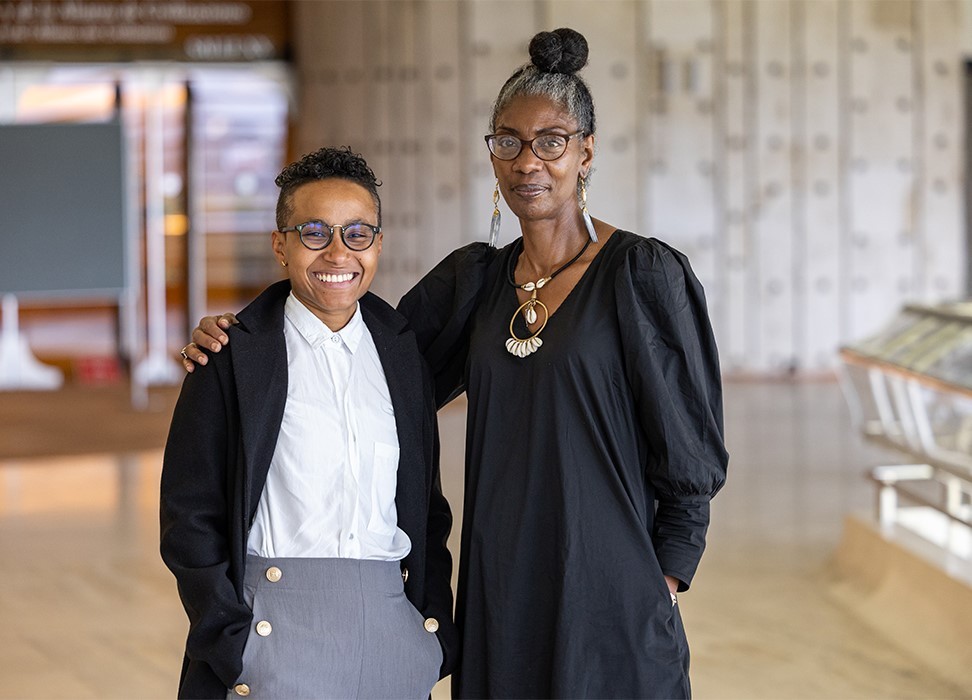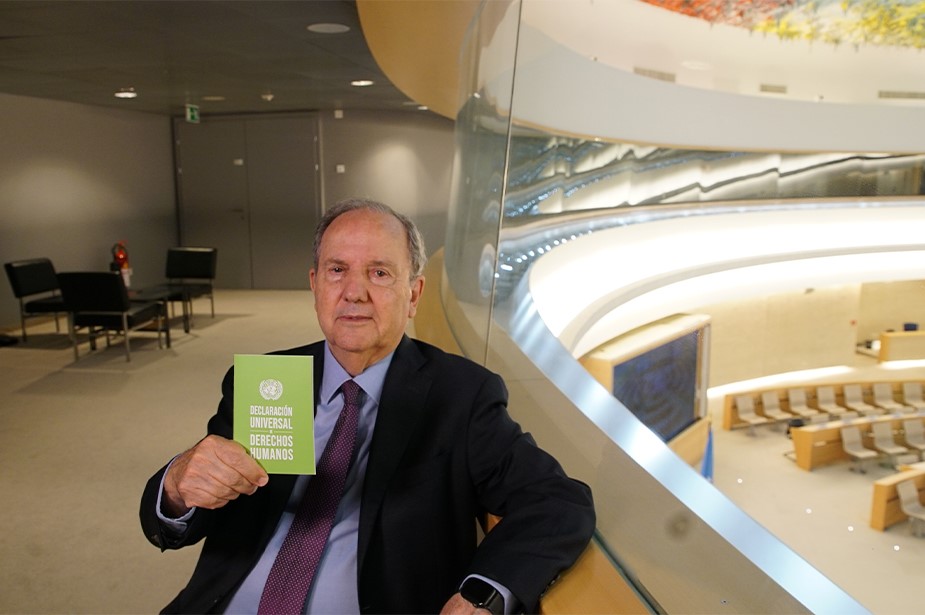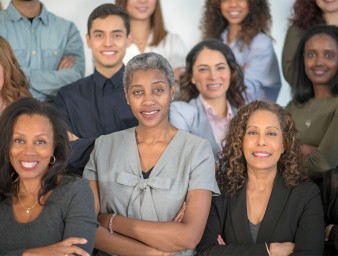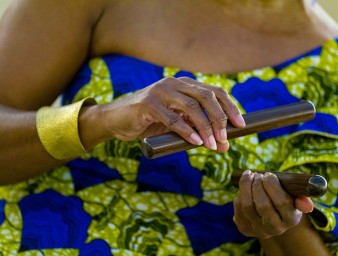Participation is key to ending systemic racism
30 October 2023

Sean Rigg was 40 years old when he died of a cardiac arrest after prone restraint by British Metropolitan Police officers in London, in 2008. The Black British man had had a mental health crisis. Fifteen years and one unprecedented public apology later, his family is still looking for justice.
“My brother received a death sentence the day the officers restrained him using excessive force,” said his sister Marcia Rigg. Since then, Rigg has met countless families who have suffered the same fate, before and after Sean died.
Rigg, who has worked for a while with the United Families and Friends Campaign and the NGO INQUEST, participated in the Enhanced Interactive Dialogue (EID) during the UN Human Rights Council. During the dialogue, the second follow-up report of the High Commissioner on racial justice and equality was presented by Deputy High Commissioner Nada Al-Nashif.
“It remains clear that in the vast majority of deaths of people of African descent after an interaction with law enforcement, progress towards accountability and redress is severely lacking,” she said. “In their struggle for justice, families continue to endure protracted and emotionally and financially draining processes – with inadequate State support.” According to the High Commissioner’s report, meaningful, inclusive, and safe participation enables the advancement of human rights and it’s a means for empowering individuals and groups and ensuring different voices are heard. Proof of this is Rigg’s participation in decision making processes and campaigning.
“At the time that my brother died, there were no cameras in police vehicles, no CCTV, no audio, no body worn cameras. And so, I campaigned vigorously with INQUEST. The United Kingdom now has cameras in police vehicles, audio, and portable cameras. And that's why when Kevin Clarke was killed [in 2018] and so many others, we can now actually see what happened to him and not just have the accounts of the police officers”, Rigg said.
When meaningful and inclusive participation is achieved, decision-making is more informed and sustainable, and public institutions are more effective, transparent, accountable, and able to serve all members of communities without discrimination. A result of this kind of participation is the first law about excessive use of force used in mental health settings in the UK, for which Rigg and other families campaigned alongside Aji Lewis, mother of Olaseni Lewis, also victim of police brutality.
Dayana Blanco, a Colombian human rights lawyer who also participated in the enhanced interactive dialogue, created ILEX Acción Jurídica along with other Afro Colombian women lawyers. The human rights organization focuses on clearly identifying the legal challenges that people of African descent face in terms of racism and law enforcement, and promotes strategies for legal actions, communications, and social research with an intersectional approach to contribute to the effective enjoyment of the rights of communities and people of African descent.
For Blanco, participation of NGOs of all sizes is key, however, she identifies several challenges.
“
It is a challenge faced by civil society organizations and the Afro leaderships all the time: our abilities are doubted over and over again
“
Dayana Blanco, general director of ILEX Acción Jurídica, human rights lawyer.
Other challenges identified by Blanco is the disproportionate use of force against people of African descent and the statistical invisibility.
“To make the issues visible, we need to collect accurate, universal, regular data that includes the racial variable,” she said.
According to Rigg and Blanco, the UN and its mechanisms are helping to overcome these and other challenges.
“The fact that it’s the experts and UN Human Rights who are talking about these issues, and that we can participate in the interactive dialogue, and talk face to face with the States’ representatives about all this, will clearly help us make the problem visible and amplify the voices”, said Blanco.
For Rigg, it has been key to share her lived experience with the UN.
“They listened to a real story. And so, the United Nations was very vocal from the very outset in my brother's case, and more recently also with all the cases where we have engaged with INQUEST. It's important and very much appreciated that the UN recognises what's actually happening in the UK,” she said.
Systemic racism needs a systemic response
During the dialogue, the report by the International Independent Expert Mechanism to Advance Racial Justice and Equality in Law Enforcement (EMLER) focusing on “reimagining policing”, was also presented. This report explores ways to adopt alternative and complementary methods of policing that can contribute to close trust deficits with the communities served.
“We say that in some countries racism is systemic or systematic because it seems to obey a state policy that deliberately sustains a different behaviour of law enforcement officers when it comes to minorities or sometimes racial or religious majorities, but certainly oppressed ones”, said Juan Méndez, Argentinian human rights lawyer and member of EMLER.

Still of Juan Méndez holding a Universal Declaration of Human Rights at Room XX of Palais des Nations. © UN/David Díaz Martín
Although hard to prove, Méndez said systemic racism can be seen in “the repetition of specific individual acts and, above all, the lack of a coherent response to the seriousness of the facts and this is very serious”.
“We say that if there is evidence of systemic racism in police forces, a systemic response is also necessary”, he continued. Part of the systemic response would be a permanent promotion of human rights and zero tolerance towards racist attitudes within law enforcement institutions.
EMLER has collected very revealing data and testimonies that show that police violence against people of African descent in different countries is not treated as seriously as it should be.
For Rigg, acts of racist violence in the context of law enforcement against people of African descent and the lack of proper response from the State and access to justice are a renewed form of enslavement.
“This is a global issue. It's business as usual, particularly for Black men. And I see it as a form of enslavement. It's still part of us being enslaved in modern times, and we're still being lynched”.
According to EMLER, it is key to address the legacy of the discriminatory factors of law enforcement institutions. That means it’s necessary to unpack the historical roots of racism, including colonialism and the transatlantic trade in enslaved Africans and their impact on key State institutions, including law enforcement and the criminal justice system.
Participation of people of African descent is key and, according to EMLER, transitional truth and reparation commissions might be required so that the root causes are analysed, and the much-needed reparations can be proposed.
Following the murder of George Floyd in May 2020, the Human Rights Council requested the High Commissioner to prepare a comprehensive report on systemic racism, violations of international human rights law against Africans and people of African descent by law enforcement agencies, to contribute to accountability and redress. Following the presentation of this report in 2021, the HRC established EMLER and requested the High Commissioner to continue to work on these issues. The High Commissioner and EMLER presented their 2023 reports during the HRC 54th session.



